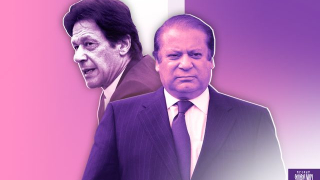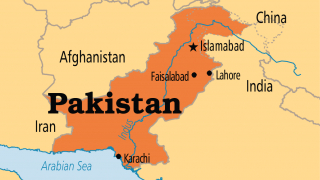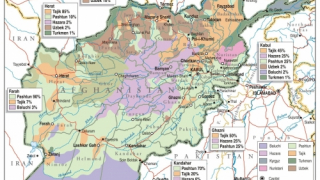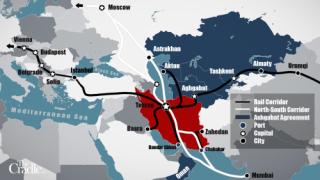Voir aussi
02.12.2024
Donald Trump a fait un retour extraordinaire en tant que 47ème président des États-Unis. Les prédictions vont bon train sur ce que sera la politique...
29.01.2024
Le 8 février, des élections législatives se tiendront au Pakistan, pays officiellement membre du "club nucléaire". Ces élections se dérouleront dans...
28.11.2016
Six citoyens polonais, employés d'une société d'exploration, ont été enlevés par des terroristes de leurs voitures à Khyber Pakhtunkhwa. Le but de...
17.04.2022
Le NSTC représente la convergence physique des grands plans stratégiques de la Russie, axés sur le sud, qui visent à équilibrer les ancrages irano-...
26.02.2022
Aujourd'hui, le mot Afghanistan est sur toutes les lèvres, même pour ceux qui ne s'intéressent pas du tout aux affaires internationales, et encore...
10.05.2024
La Grande-Bretagne a une longue histoire de création de réseaux d'agents secrets, de subversion d'autres pays et de création de mouvements par...
23.04.2022
Le coup d'État constitutionnel qui a eu lieu au Pakistan a non seulement entraîné des changements significatifs dans la situation géopolitique, mais...
23.08.2022
Interconnecter l'Eurasie intérieure est un acte d'équilibre taoïste : ajouter une pièce à la fois, patiemment, à un puzzle géant. Cela demande du...
05.04.2022
Après une défaite humiliante en Afghanistan et une perte de crédibilité au sujet de l'Ukraine, l'ère de l'unipolarité américaine semble entrer dans...
07.02.2024
Le Pakistan, l'un des grands pays nés de l'effondrement de l'Inde britannique, a hérité de relations complexes en matière de politique...
14.04.2022
Il est difficile de prédire ce qui va se passer au Pakistan, un pays qui a toujours été caractérisé par des intrigues politiques et des changements...
18.08.2022
La phase post-coloniale de l'histoire de l'Inde commence le 15 août 1947, lorsque l'Inde a obtenu sa pleine indépendance de la domination britannique.














